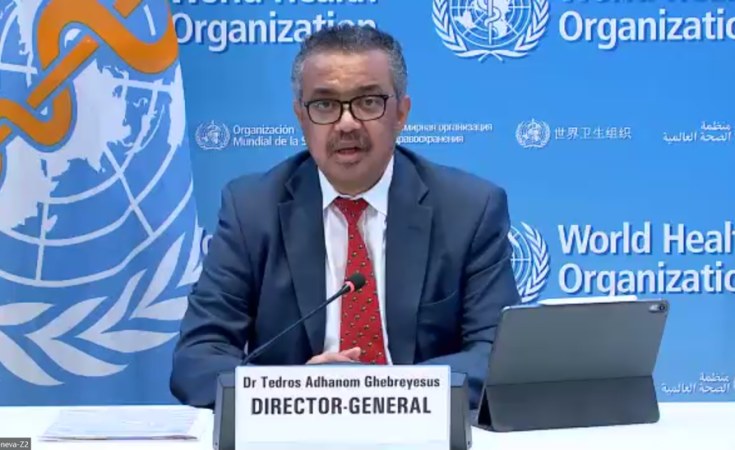As 2021 draws to a close, it's a good time to look back, and to look forward. This has been another tough year, but there's also a lot to be grateful for.
While no country is out of the woods from the pandemic, we have many new tools to prevent and treat COVID-19. More than 8.5 billion doses of vaccine have been administered globally, saving millions of lives. New treatments have been developed, which should dramatically increase access and lower mortality.
But narrow nationalism and vaccine hoarding by some countries have undermined equity, and created the ideal conditions for the emergence of the Omicron variant.
Vaccine hoarding has created the ideal conditions for the emergence of Omicron
And the longer inequity continues, the higher the risks of this virus evolving in ways we can't prevent or predict.
If we end inequity, we end the pandemic.
Through the ACT-Accelerator, which includes COVAX, WHO and our partners are helping to make vaccines, tests and treatments accessible to people who need them, all over the world.
As we enter the third year of this pandemic, I'm confident that this will be the year we end it – but only if we do it together. Quite apart from the death and disease caused by COVID-19, the pandemic threatens two decades of progress on health.
Millions of people have missed out on routine vaccination, services for family planning, treatment for communicable and noncommunicable diseases, and more.
However, there have still been breakthroughs and progress. WHO recommended broad use of the world's first malaria vaccine, which if introduced widely and urgently, could save tens of thousands of lives every year.
The eradication of polio has never been closer, with just five cases recorded in the two remaining endemic countries. And tobacco use continues to decline.
Meanwhile, WHO and our partners responded to crises around the world, including stopping new outbreaks of Ebola and Marburg.
To help prepare the world for future epidemics and pandemics, we established the new WHO BioHub System for countries to share novel biological materials.
And we opened the WHO Hub for Pandemic and Epidemic Intelligence in Berlin, to leverage innovations in data science for public health surveillance and response.
COVID-19 is not the only health threat the world's people will face next year. WHO will continue to work around the world to protect and promote the health of everyone, everywhere.
A new year brings new resolutions. Here are mine, for the world.
First, we must end the pandemic.
To do that, we need all countries to work together to reach the global target of vaccinating 70% of people in all countries by the middle of 2022. We need governments to continue using tailored public health and social measures, including testing, sequencing and reporting of variants by all countries, without fear of punitive measures. And all of us need to play our part, with masks, distancing, avoiding crowds, meeting outside when possible or in a well-ventilated space indoors.
Second, we need to build a stronger global framework for global health security.
In 2022, countries will start negotiating a global pandemic accord to strengthen the governance, financing, and systems and tools the world needs to prevent, prepare for, detect and respond rapidly to epidemics and pandemics.
WHO will continue to promote health, keep the world safe and serve the vulnerable.
And third, all countries must invest in stronger primary health care, as the foundation of universal health coverage.
COVID-19 has demonstrated that when health is at risk, everything is at risk. That's why WHO will continue to work to promote health, keep the world safe and serve the vulnerable.
I wish all people everywhere a very happy, safe and healthy 2022.


